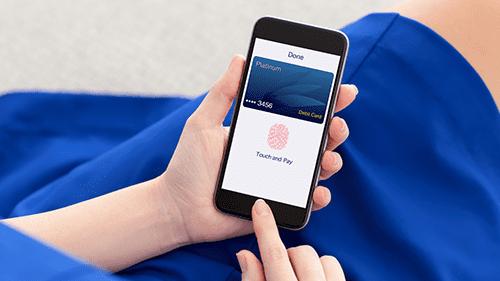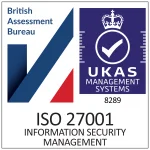
Multi-factor authentication (MFA) is an identification process where a user’s identity is verified. Whether you are logging into your computer or connecting to a network, it is now a common practise to provide further evidence of who you are. The authentication process occurs through comparing your evidence against specifications that are set for user roles and permissions within a directory.
One of the most popular types of MFA is the use of passwords. We use them all the time to gain access to our devices, networks, and applications. However, a big flaw to using passwords is that they can be compromised and cracked by hackers especially if they are not strong enough and can be easily guessed. Without any other means of protection, a hacker can gain access quite easily to your private information. Therefore, relying on just a password isn’t enough to keep your devices and information safe. Research from Bloomberg News has reported that not implementing a multi-factor authentication could be the source of vulnerability which allows for a ransomware attack to occur (1).
The greatest benefit to using multi-factor authentication is that it adds on top of your other processes, another layer of protection and barrier against ransomware attacks. Typically, a multi-factor authentication will require three combinations/requirements that you need to provide to judge your identity:
• Something you know – This could be providing an answer to a series of questions e.g. “What town were you born in?” or “What is your mother’s maiden name?”.
• Something you have – You may need to provide a verification code which has been sent to your mobile phone.
• Something that you are – This relates to your identity. For example, you may need to use your fingerprint to gain access.
For your business to be able to qualify for cyber insurance you will need to implement multi-factor authentication where possible. This includes networks, devices, email, and administrative access. Multi-factor authentication is particularly important for those working from home where there are more vulnerabilities and opportunities for cyber attackers to utilise. Microsoft also reported that by providing an additional barrier of security, you make it more difficult for cyber attackers to gain access. In fact, multi-factor authentication can block over 99.9% of account compromise attacks therefore gaining access to the password will no longer be enough to access your account and private information (2).
The use of multi-factor authentication makes it difficult and challenging for cyber criminals to gain access to your devices/ information as that would require them to not only know your password but also have access to your phone and fingerprints. Multi-factor authentication plays a huge role within the zero-trust security model. This model works on the assumption that there are constant threats both externally and internally. Therefore, you have a back-up plan if a breach was to occur and what preventative measures need to be used to avoid data being compromised. With cyber attacks continuing to increase each year, multi-factor authentication is now a requirement to get some cyber insurance policies.
There are so many services and products to choose from that are all designed to protect your infrastructure and devices. Solutions4IT has years of extensive IT security experience and with the implementation of multi-factor authentication. We would recommend the following:
• Two-factor VPN – A secure network is essential to your business and remote workers to promote efficient productivity. A VPN is an essential component to your security as it allows secure connections to occur between computers and networks in different locations. A two-factor VPN adds an additional layer of security to promote a secure network connection whilst data is being accessed remotely.
• Microsoft Azure AD – Over the recent years Microsoft has made great progress in enhancing their products and services to promote efficient security. Azure Active Directory features additional access controls (multi-factor authentication) which relates to preventing unauthorised users from being able to gain access to your device/ data.
Each year we see more and more organisations fall victim to cyber attacks which could’ve been prevented through implementing new processes in place such as multi-factor authentication. Solutions4IT specialises in providing IT security solutions to businesses to help protect their assets from being compromised by cyber criminals. Speak to our IT experts today by calling on 0121 289 4477.

